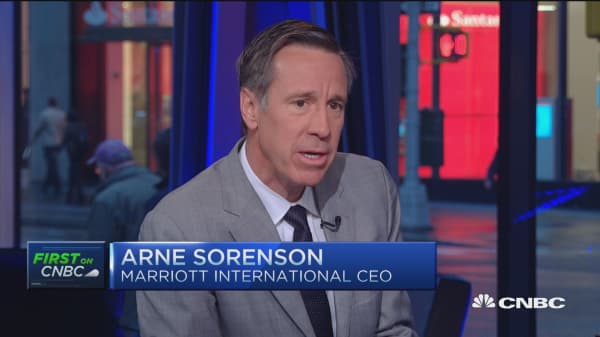Predictability in nondiscrimination laws would be welcome. Unfortunately, we do not yet have a federal law banning employment discrimination or discrimination in the provision of public accommodations that includes protection for LGBT people. That is exactly why Marriott recently joined with scores of American business leaders to endorse Congressional passage of the Equality Act — which for the first time, will set uniform, federal protections in place that include sexual orientation and gender identity.
At Marriott, we are dedicated to ensuring every guest and all of our associates are valued, welcomed and protected from discrimination whenever they enter our doors. However, we also believe they deserve equal respect and safeguards from discrimination in the communities where they live and raise their families.
America's promise is clear. Our nation strives to provide equal opportunity, no matter who you are. Most Americans today understand that we shouldn't judge people by how they worship, who they love, what gender they identify with or by their wealth, nationality, race, sex, age or physical abilities.
To be competitive in the world today, America needs everyone's skills. Including LGBT people in that effort is not simply the right thing to do, it's also essential for business.







